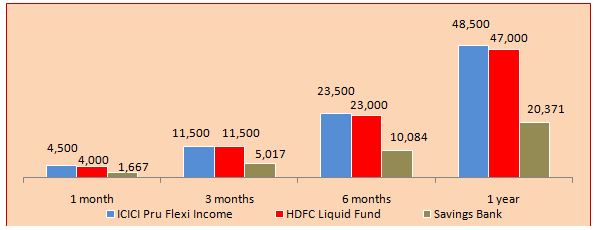New Tax Rules for Mutual Fund Investors
Post on: 16 Июль, 2015 No Comment

Related Links
Mutual fund investors who sold some or all of their shares last year may face a new wrinkle when preparing their 2012 tax returns: There are new rules for reporting capital gains on the sale of fund shares.
In the past, taxpayers calculated their capital gains and reported them to the Internal Revenue Service on Schedule D: Capital Gains and Losses.
But starting with federal returns due April 15, if you sold shares purchased on or after Jan. 1, 2012, you must report the gains on Form 8949: Sales and Other Dispositions of Capital Assets. using figures your fund company has calculated and is sending the IRS.
Mutual fund accounts held in traditional IRAs are excluded from this rule, because theyre tax-free until the money is withdrawn.
How Mutual Fund Investors Will Be Helped
Stuart Ritter, a senior financial planner at T. Rowe Price in Baltimore, says now that fund companies will provide you with your capital gains figures, it should become easier to report them correctly. You wont have to forage through previous statements to find the amount you paid for the shares you sold, also known as your cost basis, which is essential information to determine your taxable gain.
The new rule can be especially useful if your funds dividends are automatically reinvested for you. Thats because people in reinvestment plans wind up buying shares frequently and it can be hard to calculate their cost basis. I know about taxes, but Im still not able to keep track of my basis, says Sam Brunson, who teaches tax law at Loyola University Chicago.
Tricky Calculations for Some Fund Investors
Since the new reporting requirement doesnt apply to shares bought before Jan. 1, 2012, youll still be responsible for calculating gains on fund purchases made before that date. So unless your fund company provided you with that price data, youll need to go through your back statements to run the numbers.
Thats why the new rule could make things complicated for investors who bought shares before 2012.
Covered vs. Noncovered Shares
Your funds 1099-B tax form now lists your shares as either covered or noncovered. Thats a shorthand for whether theyre subject to the new reporting rules (covered shares) or theyre not (noncovered).
Youll need to complete a separate Form 8949 for covered shares and uncovered shares and transfer the tax liability to Schedule D.
Which Fund Shares Did You Sell?
If you bought a funds shares on different dates and sold some last year, determining which ones you unloaded depends on the cost-basis method you choose (details are in Publication 550: Investment Income and Expenses .)
 
Generally speaking, you can select among three methods:
- Specific Share Identification You decide which of your shares you sold. For instance, you could go with Last In, First Out, or LIFO, which assumes the last shares you bought were the ones you sold.
- Average Cost You add together the cost basis of all your shares then divide by the number of shares you own.
- First In, First Out (FIFO) This assumes the first shares you bought are the ones you sold.
Most fund companies are using the average cost method as their default when sending the IRS calculations for shares purchased and sold after Jan. 1, 2012.
If you prefer an alternative calculation method, tell your fund company how you want it to submit reports on your gains to the IRS. Your funds website may let you choose a cost-basis method there or the investment company may need you to speak to one of its representatives and then fill out a form.
How to Pay the Least in Taxes
Although the specific share method requires the most effort and recordkeeping, as Kiplingers Personal Finance magazine has noted. it also offers the most flexibility and potential tax savings. Thats because you can opt to sell the shares you paid the most for, which will translate into the lowest tax bill you could owe on the sale.
But now that fund companies need to track cost basis and report the data to the IRS, the specific share method is likely to be easier for you to use going forward.
If all of this makes your head spin, visit your mutual funds website, where youll likely find a more comprehensive rundown on the new rules and how your fund company is handling its investors taxes.
Ann C. Logue is a Chicago-based author of several books including Emerging Markets for Dummies and has written for Barrons, Entrepreneur and Newsweek, among other publications.














